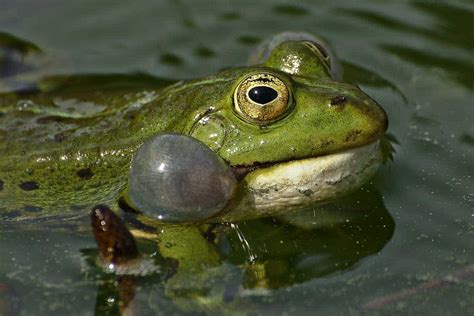Frogs have been a part of our ecosystem for millions of years, and their distinctive croaking sounds have become an integral part of many environments around the world. But have you ever wondered why frogs croak in the first place? In this article, we'll delve into the fascinating world of frog communication and explore the top 5 reasons why frogs croak.
The Language of Frogs
Frogs use a variety of sounds, including croaks, chirps, whistles, and even what can be described as a loud, nasal "quack." Each species has its unique vocalizations, and scientists believe that these sounds play a crucial role in frog communication.

Reason #1: Mating and Courtship
One of the primary reasons why frogs croak is to attract a mate. Male frogs will often vocalize to advertise their presence to potential females in the area. This is especially true during the breeding season, when males will engage in loud, competitive croaking to establish dominance and attract females.
In some species, males will even form "choruses" where they gather in large groups and croak in unison to create a loud, synchronized sound. This phenomenon is often referred to as a "frog concert."
Reason #2: Territorial Defense
Frogs also use their vocalizations to defend their territory from other frogs. By croaking loudly, a frog can advertise its presence and warn potential intruders to stay away. This is especially important for male frogs, who must defend their territory from rival males.
In some species, frogs will even engage in "vocal battles" where they will croak loudly to establish dominance and defend their territory.
Reason #3: Warning Calls
Frogs also use their vocalizations to warn other frogs of potential predators. When a frog senses danger, it will often emit a high-pitched alarm call to alert other frogs in the area.
This is an essential survival mechanism, as it allows frogs to quickly respond to threats and avoid predators.
Reason #4: Social Interactions
Frogs also use their vocalizations to communicate with each other in social interactions. For example, some species of frogs will use specific calls to initiate interactions with other frogs, such as during foraging or mating.
In some species, frogs will even use vocalizations to coordinate their behavior, such as during group foraging or migration.
Reason #5: Environmental Cues
Finally, frogs may also use their vocalizations to respond to environmental cues, such as changes in temperature, humidity, or light.
For example, some species of frogs will croak more frequently during periods of high humidity or after rainfall, which can trigger breeding behavior.
How Do Frogs Produce Sound?
Frogs produce sound using a unique vocal apparatus that involves the inflation and deflation of their lungs, throat, and mouth.
When a frog wants to croak, it will first inflate its lungs with air. The air is then passed through the frog's vocal cords, which vibrate to produce sound waves.
The sound waves are then amplified by the frog's mouth and throat, which act as a resonating chamber.

Types of Frog Vocalizations
Frogs produce a wide range of vocalizations, including:
- Croaks: A deep, resonant sound often used for mating and territorial defense.
- Chirps: A high-pitched, bird-like sound often used for social interactions.
- Whistles: A high-pitched, whistling sound often used for warning calls.
- Quacks: A loud, nasal sound often used for alarm calls.
Each species of frog has its unique vocalizations, and scientists are still working to understand the full range of frog communication.
Conservation Implications
The study of frog vocalizations has important implications for conservation efforts.
By understanding the complex communication systems of frogs, scientists can better monitor and manage frog populations.
For example, researchers can use frog vocalizations to track population sizes, detect changes in population dynamics, and monitor the impact of environmental changes on frog populations.

What Can We Do to Help?
There are many ways to help protect frog populations and conserve their habitats.
Some simple steps include:
- Reducing pesticide use: Pesticides can harm frog populations and contaminate their habitats.
- Conserving water: Frogs rely on water for breeding and survival, so conserving water is essential for their survival.
- Protecting habitats: Preserving natural habitats, such as wetlands and forests, is crucial for frog conservation.
By working together, we can help protect these incredible creatures and preserve their fascinating world of communication.






Conclusion
In conclusion, the fascinating world of frog communication is a complex and multifaceted phenomenon that plays a crucial role in the survival and success of frog populations.
By understanding the reasons why frogs croak, we can better appreciate the importance of conservation efforts and work to protect these incredible creatures and their habitats.
So next time you're out in nature and you hear the distinctive sound of a frog croaking, remember the incredible world of communication that's taking place right before your ears!
What is the main purpose of frog vocalizations?
+The main purpose of frog vocalizations is to communicate with other frogs, primarily for mating and territorial defense.
How do frogs produce sound?
+Frogs produce sound using a unique vocal apparatus that involves the inflation and deflation of their lungs, throat, and mouth.
What can we do to help protect frog populations?
+We can help protect frog populations by reducing pesticide use, conserving water, and protecting their habitats.
